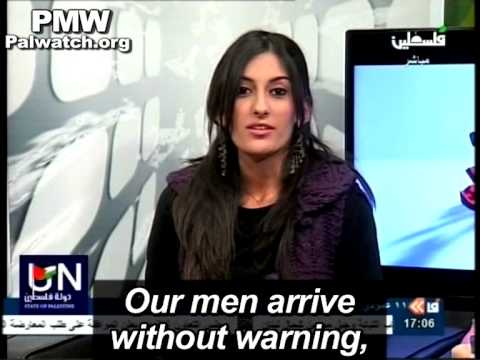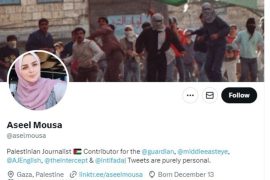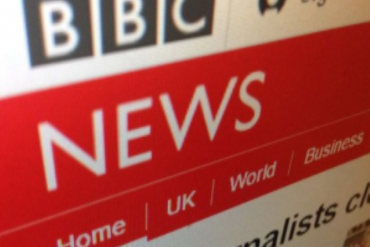In the Middle East section of the BBC News website, talks in Cairo between Hamas and the Palestinian Authority were near the top of the bill on January 9th 2013 with an entire article originally entitled “Morsi ‘to mediate’ talks between Fatah, Hamas leaders” dedicated to talks which had not yet taken place. (The article has since undergone several changes: see here.)
The subject of Palestinian unity is one with which the BBC has been very preoccupied of late, with sections of its coverage of the recent Hamas and Fatah rallies inGaza and the PA-controlled territories devoted to heralding them as signs of new-found collaboration. In this article too, the rallies are produced as examples of improved relations.
“But observers say there have been signs of warming ties between the rivals ahead of Wednesday’s talks.
Last Saturday, Hamas allowed Fatah to hold rallies in Gaza for the first time since 2007.
Hundreds of thousands of supporters of Mr Abbas held mass gatherings in the coastal enclave to mark Fatah’s 48th anniversary.
Meanwhile last month, supporters of Hamas celebrated their movement’s founding with a rare rally in the West Bank, which is governed by the PA.”
Particularly interesting, though, is the BBC’s explanation to its readers of the differences between the Fatah-dominated PA and Hamas.
“The Islamist Hamas group and the secular Fatah fundamentally disagree in their approach towards Israel.
Hamas has refused to renounce violence, recognise Israel’s right to exist or accept peace accords between the Fatah-dominated Palestinian Authority and Israel.”
That, of course, implies that the PA and its main faction Fatah have renounced violence, recognize Israel’s right to exist and embrace the peace process.
But is that really the case? A recent report by Palestinian Media Watch shows a somewhat different side to the recent celebrations organized by Fatah to celebrate the 48th anniversary of its first armed attack on Israel than the pastoral pictures of yellow flags dancing in the winter sunlight which was presented by the BBC. The PMW report focuses on Fatah’s Facebook account.
“The page glorifies violence and terror as acts of heroism, and depicts a world without Israel. The Facebook page is filled with pictures of automatic rifles and slogans venerating arms. In some pictures, young children are carrying rifles.
Other pictures show maps of “Palestine” that include the PA areas as well as all of Israel. Fatah’s page glorifies Saddam Hussein and memorializes terrorist Dalal Mughrabi, who led the most lethal terror attack in Israel’s history: a bus hijacking attack that killed 37 civilians.”
Of course the Fatah emblem itself – with its crossed rifles, grenade and depiction of an area of land which includes the State of Israel – does not suggest either a renunciation of violence or the acceptance of Israel’s right to exist.

On December 13th 2012, in a live broadcast on PA TV during the Hamas 25th anniversary celebrations in Nablus (Schem), the Secretary of Fatah’s Revolutionary Council, Amin Maqboul, praised the terrorist organisations in the Gaza Strip for their launching of rockets at Israeli civilians during Operation Pillar of Cloud: [emphasis added]
“Masses of our people came out from all places – the various cities, villages, and refugee camps of the liberated [West] Bank – in order to reinforce our nation, standing tall and strong in Gaza, and to support it, as it resisted and responded to the occupation’s aggression, aircraft, warships, and tanks – by shelling its cities and settlements. May those hands be blessed. Blessed be those hands that taught the Israeli occupier a lesson, that won victory and refuted the enemy’s claim that he was invincible.”
On January 4th 2013, the PA’s television channel broadcast a speech by Mahmoud Abbas in which he said :
“On the anniversary of Fatah, we renew the pledge to our fortunate martyrs. We pledge to continue on the path of the martyr brother Abu Ammar [Yasser Arafat], and his comrades and brothers, the leaders from all the fighting factions – all the martyrs.
Abass went on to name former leaders of all the prominent Palestinian terror organisations, also praising the former Nazi collaborator Haj Amin Al Husseini and instigator of the 1936 riots Izz Al-Din Al Qassam.
The PA regularly broadcasts television programmes – including for children – which glorify and promote violence and terror. It repeatedly names schools, summer camps, sporting events, streets and squares after terrorists. The PA media frequently refers to Israel as “the occupied ’48 territories”, erases it from maps and describes Israeli towns and cities as “Palestinian”, often depicting a future without Israel.
This programme, for example, was broadcast on PA TV in December 2012:
[youtube=http://www.youtube.com/watch?feature=player_embedded&v=NsCKMriPTgw]
All this information – and much more – is readily available in the public sphere. But for some reason the BBC continues to portray the PA and its main Fatah faction (not without internal disagreements of its own) as the ‘responsible adult’ among the numerous Palestinian groups, whilst concurrently failing to report the rise in the number of violent events emanating from PA-controlled areas.
This reluctance to report things as they really are marks a failure on the part of the BBC to meet its obligation to make “people in the UK aware of international issues” and “to ensure that the BBC gives information about, and increases understanding of, the world through accurate and impartial news, other information, and analysis of current events and ideas” – as set out in the agreement between the BBC and the DCMS.






